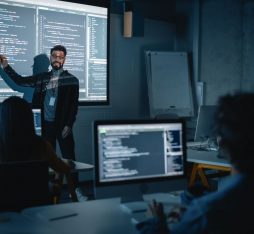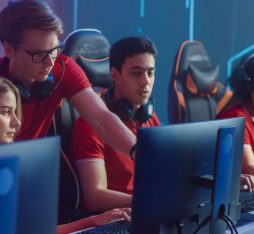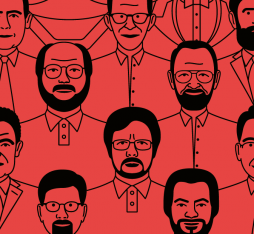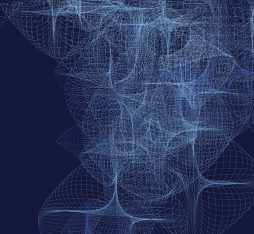Are MOOCs really a revolution in learning?
Today, MOOCs are mainly used in higher education, where they allow mass dissemination of lecture courses to multiple countries. The MOOC concept was invented by two Canadians, Stephen and Downes, in 2008, and then, in 2012, two professors at the University of Stanford in the United States created Coursera. Thus the online course concept open to all was born, but in contrast to the Canadian initiative, is very instructional, i.e. vertical and top-down. The goal of the Coursera platform is to make knowledge available to the greatest number of people, and is now the largest such platform in the world.
So does all this actually represent a learning revolution? Not really, for two reasons. Firstly, the vast majority of MOOCs are today instructional, i.e. they are based on one or only a few “experts” who speak to passive “learners.” Community MOOCs, in which the learners are more active, are rare. As such, MOOCs often do nothing more than expand the scale of the lecture hall – from 400 students to tens of thousands. Secondly, in the technical sense, it is not very complicated to develop a MOOC platform. MOOCs are thus not a revolution in and of themselves. On the other hand, private virtual instruction, whether free or charge or fee-based, is creating something of a revolution. It is already omnipresent on the web, and competes directly with public education programs. This is a historical first.
Will MOOCs permeate all areas of education in the near future?
Yes, MOOCs are about to enter national education at all levels. We cannot say how quickly it will occur, but the majority of elementary, middle, and high schools will ultimately adopt new online learning methods, including MOOCs. Some MOOCs that favor peer learning are developing a new pedagogical method based on active teaching principles that date back to the 1920s to 1940s (such as Freynet and Piaget). They allow “learners” to learn by socializing and interacting with pedagogical teams and other “learners.” This is therefore not a revolution but rather the use of digital methods to modernize little-known pedagogical tools that are nonetheless tried and tested. MOOCs are a move away from top-down teaching to an open, interactive, and peer-based approach. In such an environment, we all become “experts,” who possess certain types of knowledge, and, at the same time, also “learners,” i.e. we are both producers and consumers of content. This new reality is a major identify transformation challenge for teachers. They will need to become advisors rather than “experts,” i.e. facilitators of peer learning and of social ties and interactions between individuals.
And within the work world?
On the other hand, in the development of skills in the business world, MOOCs represent a fundamental revolution. They allow the formation of teams via 24/7 platforms, relaying skills between them, and creating new skills development methods. Both employees and employers will see tangible benefits, including time savings, lower costs, skills development management, maintenance as well as increased employability, and mobility. Digitalization creates new possibilities to acquire skills virtually. Most MOOCs are free of charge with the exception of certain “business to consumer” platforms such as Coorpacademy. Thanks to digitalization, employees can acquire knowledge and adopt a new learning culture rather than be obligated or required to adapt to change. They can continually test, acquire, and develop skills both at work and at home, and do so more autonomously. This is what is referred to as “Lifelong learning.” In the digital world, learning is working and working is learning.
Today, there is often talk of immersive reality. What role might this play in knowledge acquisition?
Although we are only at the initial stage of immersive reality, we are, for example, already able, using computer-generated images, to simulate a breakdown on the production line at a plant and go in and repair it. At the cinema, immersive reality allows viewers to have sensations that put them at the heart of the action, immersing them in the movie and experiencing it from the inside – which at times might not be pleasant for some. Immersive reality is already used as a teaching tool in the area of professional training (only in French) (CAP [professional aptitude certificate], BEP [professional studies certificate], Bac pro [professional baccalaureate], BTS [higher technical certificate]). It allows professional situations to be recreated that then help teachers use simulations to train their students.
Is it possible to imagine going even further?
In the area of pharmaceuticals, we are now able to send certain therapeutic active compounds to target receptors in ailing cells. This is called vectorization. Ultimately, we will be able to send information contained within nanobio active compounds to specific areas of an individual’s brain. The paradoxical sleep phase will be the most receptive to this “transfer” of information at the source. The neurophysiologist and onirologist Michel Jouvet,(only in French) the “father of paradoxical sleep,” has in fact shown that we are likely to learn while dreaming – an innate ability that all warm-blooded mammals have had for 200 million years – and that dream images were a language long before spoken languages appeared. These images help the brain organize itself. However, before this is possible, we must first be able to model the neurobiochemical organization and functioning of the brain. Projects with this goal are now underway.
What would you say if, by 2050, you could swallow a pill before bed and then wake up knowing how to speak English or Japanese? Nicholas Negroponte, the co-founder of the MIT Media Lab, has predicted that one day we will be able to learn while we sleep…
However, we have not yet achieved this goal – perhaps fortunately since achieving it – will confront us with ethical issues that will first need to be answered.
Learn more about MOOCs:
Academic platforms:
– Coursera, EdX, Udacity,
– Udemy,
– EdX
– Iversity (German)
– Futurelearn (British)
– FUN (French, only in French version)
Non-academic platforms (peer learning):










